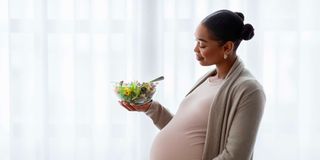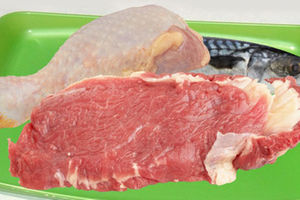Kenyan researchers in global effort to develop improved dietary supplement for pregnant women

The project, named ‘Mother’s Micronutrient Supplement for Pregnancy and Lactation’, will develop and test an improved dietary supplement tailored to the needs of pregnant women, with the goal of reducing risk of low birth weight and enhancing the health and development of mothers and children.
What you need to know:
- More than 3,000 pregnant women will participate in the study.
- They will be closely monitored during pregnancy and throughout the first year of their babies’ lives to assess the supplement’s impact on health, growth and cognitive development.
Kenyan researchers are spearheading the development of a groundbreaking dietary supplement that could revolutionise maternal and child health across the world.
The project, named ‘Mother’s Micronutrient Supplement for Pregnancy and Lactation’, will develop and test an improved dietary supplement tailored to the needs of pregnant women, with the goal of reducing risk of low birth weight and enhancing the health and development of mothers and children.
The research will be centered in Bungoma County, a region in western Kenya known for its lush landscapes but also for its dietary challenges. Here, food insecurity is prevalent, blotted with poor dietary diversity where meals consist mainly of starchy staples such as ugali, made from maize flour, or from a mix of sorghum or millet with cassava flour and vegetables. Tubers and roots such as sweet potatoes are the alternatives to ugali, with many households tending to have lower intakes of fruits and animal protein, according to a survey conducted in the region and published by Herald Scholarly Open Access, an international leading publishing house in the fields of Medical, Clinical, Pharmaceutical and Life Science.
More than 3,000 pregnant women will participate in the study. They will be closely monitored during pregnancy and throughout the first year of their babies’ lives to assess the supplement’s impact on health, growth and cognitive development.
The transformative international research project, which is funded by the Bill and Melinda Gates Foundation and the Novo Nordisk Foundation with a Sh1.4 billion grant, builds on the World Health Organization's (WHO) 2020 recommendation of Multiple Micronutrient Supplements (MMS), which provide 15 essential vitamins and minerals. However, emerging research suggests that MMS can be optimised further.
Why nutrition matters
Women’s nutrient needs increase during pregnancy, and inadequate diets during this critical period can result in serious health issues for both mothers and their babies. While food-based nutrition is preferred, in many low and middle-income countries, including Kenya, the available diet means that pregnant women are not getting enough nutrients.
Therefore, in 2020, the WHO recommended the use of MMS - a daily dose consisting of 15 essential vitamins and minerals. Many countries are today in the process of transitioning from using iron-folic acid alone to MMS as part of the standard for antenatal care.
“Nutrient deficiencies during pregnancy can have serious consequences for both maternal and child health. Low birth weight, poor maternal health, and impaired cognitive development are some of the devastating consequences of nutrient deficiencies during pregnancy,” explains Dr Zipporah Bukania, senior principal research scientist at the Centre for Public Health Research, Kenya Medical Research Institute.
“That is why it is crucial that we improve the nutrition of pregnant women for the benefit of their foetuses and children. This grant is a great recognition of that, and our goal is that the research will not only improve health in the participating areas, but also form the basis for new global health standards for pregnant women and their children,” says Dr Bukania.
Prof Arne Astrup, senior vice-president of the Novo Nordisk Foundation, said the project has the potential to transform local and global health outcomes.
“We now know that malnutrition during pregnancy and the first years of life contributes to the development of a wide range of serious and chronic diseases such as cardiovascular disease and diabetes. This can impact the future prospects of an entire country. I therefore hope that with this project, we can help improve local health facilities, train health workers, change health behaviour and strengthen capacity. We need to create structural, lasting change, both regionally and globally.”
The project brings together experts from Kenya, Norway and Denmark, who will develop a next-generation supplement, referred to as MMS+, by increasing doses of certain nutrients and introducing additional ones like docosahexaenoic acid (DHA) and choline—which are good for a baby’s brain. These nutrients are believed to significantly boost cognitive development in children.
“Our goal is to create a product that better addresses nutritional gaps,” says associate professor Benedikte Grenov from the University of Copenhagen.
“By including DHA, choline and higher doses of vitamin B3, we hope to have a lasting positive impact on women and children.”
Beyond immediate health benefits, the project aims to create sustainable improvements in maternal and child healthcare. The Novo Nordisk Foundation envisions broader outcomes, including training healthcare workers, strengthening local health systems, and influencing health behaviour.
This collaboration highlights Kenya’s growing role in global health research and innovation. If successful, the findings could lead to new global standards for maternal nutrition, ensuring healthier futures for mothers and children across the world.





